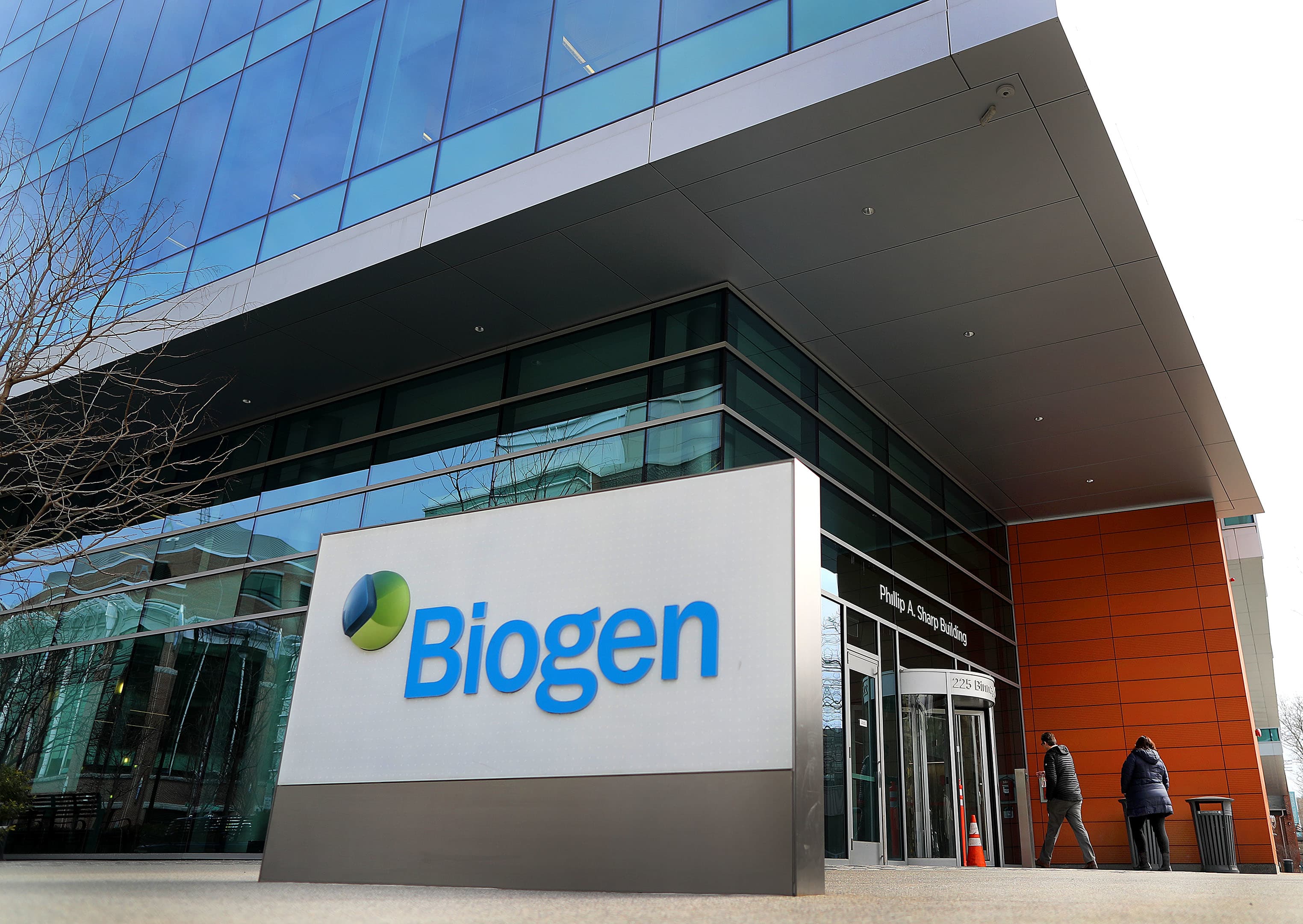Patient receives first infusion of Biogen's controversial Alzheimer's drug

The exterior of the headquarters of biotechnology company Biogen in Cambridge, MA is pictured on March 21, 2019.
John Tlumacki | Boston Globe | Getty Images
A 70-year-old man from Rhode Island on Wednesday was the first person to receive an infusion of Biogen's newly approved Alzheimer's drug, Aduhelm, outside of a clinical trial.
Marc Archambault of Wakefield was treated with the intravenous drug – which is priced at a whopping $56,000 per year –at Butler Hospital's memory and aging program in Providence, a spokesperson confirmed to CNBC.
The drug is "transforming how we treat Alzheimer's," Dr. Stephen Salloway, director of neurology and the memory and aging program at Butler Hospital, said at a news conference.
Shares of Biogen surged last week after the Food and Drug Administration approved the biotech company's drug, the first medication cleared by U.S. regulators to slow cognitive decline in people living with Alzheimer's and the first new medicine for the disease in nearly two decades.
Biogen's drug targets a "sticky" compound in the brain known as beta-amyloid, which scientists expect plays a role in the devastating disease. The medication is expected to cost Medicare, which hasn't yet determined how much of the drug's cost it will cover, billions of dollars a year.
Aduhelm by Biogen
Source: Biogen
The FDA's decision was controversial as it was a departure from the advice of its independent panel of outside experts, who unexpectedly declined to endorse the drug last fall, citing unconvincing data. At least three members of the panel have resigned in protest of the agency's decision.
Dr. Aaron Kesselheim, a professor of medicine at Harvard Medical School and one of the three who resigned, said the agency's decision "was probably the worst drug approval decision in recent U.S. history."
"This will undermine the care of these patients, public trust in the FDA, the pursuit of useful therapeutic innovation, and the affordability of the health care system," he wrote in resigning from the FDA's Peripheral and Central Nervous System Advisory Committee.
Federal regulators have faced intense pressure from friends and family members of Alzheimer's patients asking to fast-track the drug, scientifically known as aducanumab, but the road to regulatory approval has been a controversial one since it showed promise in 2016.
In March 2019, Biogen pulled development of the drug after an analysis from an independent group revealed it was unlikely to work. The company then shocked investors several months later by announcing it would seek regulatory approval for the medication after all.
When Biogen sought approval for the drug in late 2019, its scientists said a new analysis of a larger dataset showed aducanumab "reduced clinical decline in patients with early Alzheimer's disease."
Alzheimer's experts and Wall Street analysts were immediately skeptical, with some wondering whether the clinical trial data was enough to prove the drug works and whether approval could make it harder for other companies to enroll patients in their own drug trials.
Some doctors have said they won't prescribe aducanumab because of the mixed data package supporting the company's application.
Read More

No comments